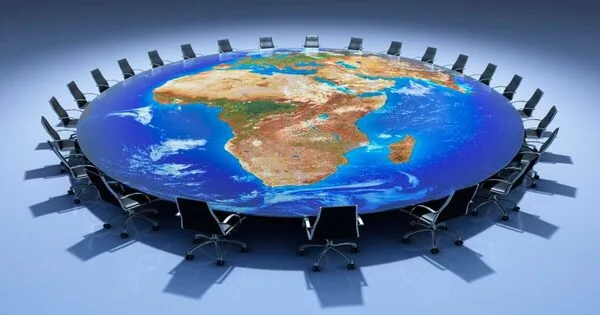Democratic globalization refers to the idea of using democratic principles and processes to govern globalization, including the protection of human rights and the promotion of social justice. It is based on the belief that globalization should be managed in a way that benefits everyone, not just a select few, and that citizens from around the world should have a voice in shaping the global rules and institutions that govern it. This concept often emphasizes the need for greater transparency and accountability in international organizations and trade agreements, as well as the importance of reducing inequality and promoting sustainable development.
Democratic globalization is a social movement aimed at establishing a global democratic institutional system. David Held, a British political thinker, is one of its supporters. Held has written a dozen books about the spread of democracy from territorially defined nation-states to a system of global governance that encompasses the entire globe in the last decade. For some, democratic medicalization is a variant of democratic globalization emphasizing the need for citizens worldwide to directly elect world leaders and members of global institutions; for others, it is simply another name for democratic globalization.
It aims to ensure that the benefits of globalization are shared equitably and that the impact of globalization on individuals, communities, and countries is managed in a democratic and inclusive manner. This concept contrasts with undemocratic forms of globalization, which are seen as being dominated by a small number of powerful actors and resulting in unequal outcomes.
Supporters of democratic globalization argue that the choice of political orientations should be left to world citizens through their participation in global democratic institutions. Some anti-globalization activists do not necessarily disagree with this viewpoint. For example, George Monbiot, who is normally associated with the anti-globalization movement (but prefers the term global justice movement), has proposed similar democratic reforms of most major global institutions in his book Age of Consent, including direct democratic elections of such bodies and a form of world government.
It aims to balance the economic globalization that has been taking place in recent decades with increased political participation and representation of people and nations at the global level. This concept calls for reforms in international institutions and governance systems to ensure that they are more democratic and responsive to the needs and concerns of ordinary citizens and countries. The ultimate goal of democratic globalization is to create a more just, equitable, and sustainable world through democratic decision-making and the empowerment of individuals and communities.
Democratic globalization advocates for the expansion of political democracy to economic and financial globalization. It is based on the idea that free international transactions benefit the entire global society. They believe in financially open economies in which the government and central bank must be transparent in order to maintain market confidence, as transparency spells the end of autocratic regimes. They promote democracy by removing restrictions on such transactions, which makes leaders more accountable to the citizens.
Proponents argue that democratic globalization would be achieved by establishing democratic global institutions and transforming international organizations (which are currently intergovernmental institutions controlled by nation-states) into global ones controlled by citizen voting. The movement proposes doing it gradually by establishing a small number of democratic global institutions in charge of a few critical areas of mutual interest. Its long-term goal is for these institutions to eventually federate into a full-fledged democratic global government.
















